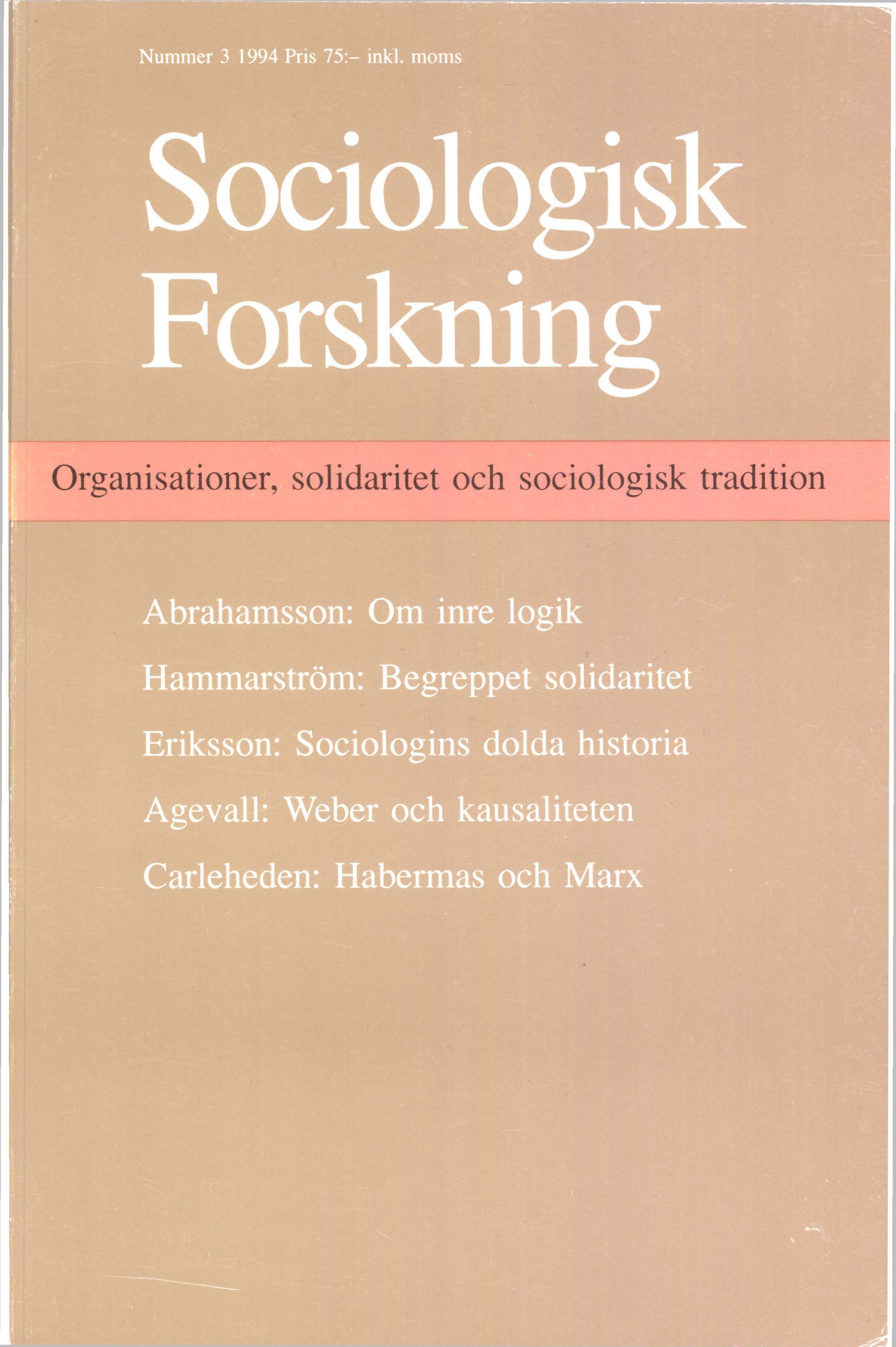Det gick som det gick. Om inre logik, särskilt i organisationer
DOI:
https://doi.org/10.37062/sf.31.18615Abstract
Whatever happened, happened. Some notes on inner logic, especially in organizations
The notion that social events partly arise as a consequence of inner logic, i.e. that patterns and structures emerge outside of, or even in opposition against, plans and goals is a common element in social science. Inner logic is a summary term for social processes developing autonomously, i.e. without any individual or group intending them. Organizations quite often contain inner-logic processes. If, as this author maintains, fruitful organization theory has to build on rationalistic assumptions, how then do we handle instances of inner logic? A first step may be to break up the traditional link between structuralism and functionalism, maintaining the former and rejecting the latter. Organizations are intentionally dynamic, i.e. depend on order and predictability. To the extent that inner-logic processes appear in organizations, they should be analysed as confrontations between opposing rationalities rather than as spontaneous reactions of a ”system” . Also, frequently recurring organizational forms such as hierarchy are more fruitfully regarded as e.g. transaction-cost outcomes rather than as functional responses to system needs. Rationalism and structuralism are compatible, rationalism and functionalism are not.
Downloads
Published
How to Cite
Issue
Section
License
All content in Sociologisk Forskning is published with immediate open access, under the Creative Commons license CC BY-NC-ND 4.0.
All content may be read, downloaded, shared and printed for non-commercial purposes, free and without fees. Contents may not be altered. When content is reused, author, source and a link to the copyright licence must be provided. The author retains copyright to their content. No publication fees are charged.





